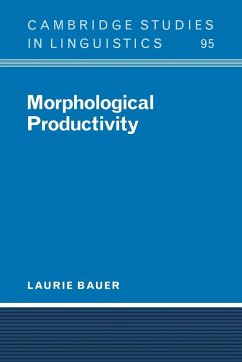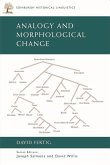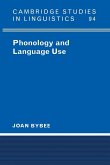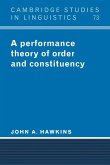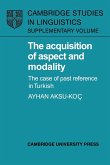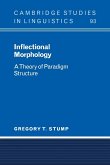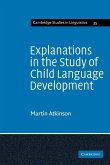This book deals with the problems surrounding the phenomenon of apparently variable productivity in morphology.
Why are there more English words ending in -ness than ending in -ity? What is it about some endings that makes them more widely usable than others? Can we measure the differences in the facility with which the various affixes are used? Does the difference in facility reflect a difference in the way we treat words containing these affixes in the brain? These are the questions examined in this book. Morphological productivity has, over the centuries, been a major factor in providing the huge vocabulary of English and remains one of the most contested areas in the study of word-formation and structure. This book takes an eclectic approach to the topic, applying the findings for morphology to syntax and phonology. Bringing together the results of twenty years' work in the field, it provides new insights and considers a wide range of linguistic and psycholinguistic evidence.
Table of contents:
1. Introduction; 2. A historical conspectus; 3. Fundamental notions; 4. Psycholinguistic evidence about productivity; 5. Scalar productivity; 6. Exemplification; 7. Conclusion; References; Indexes.
Hinweis: Dieser Artikel kann nur an eine deutsche Lieferadresse ausgeliefert werden.
Why are there more English words ending in -ness than ending in -ity? What is it about some endings that makes them more widely usable than others? Can we measure the differences in the facility with which the various affixes are used? Does the difference in facility reflect a difference in the way we treat words containing these affixes in the brain? These are the questions examined in this book. Morphological productivity has, over the centuries, been a major factor in providing the huge vocabulary of English and remains one of the most contested areas in the study of word-formation and structure. This book takes an eclectic approach to the topic, applying the findings for morphology to syntax and phonology. Bringing together the results of twenty years' work in the field, it provides new insights and considers a wide range of linguistic and psycholinguistic evidence.
Table of contents:
1. Introduction; 2. A historical conspectus; 3. Fundamental notions; 4. Psycholinguistic evidence about productivity; 5. Scalar productivity; 6. Exemplification; 7. Conclusion; References; Indexes.
Hinweis: Dieser Artikel kann nur an eine deutsche Lieferadresse ausgeliefert werden.

